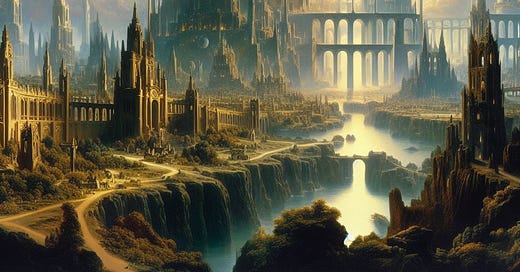I’m always suspicious of theories that claim human beings used to be essentially different than they are today. When I hear someone say something like, “The individual was invented in 1592,” I immediately think of instances in literature where someone’s individuality is asserted against the demands of his society — Socrates annoying Athens, say, in his attempt to prove himself unwise.
What I do believe is that interior perspectives occasionally morph and our view of life changes with them. It may be that a primitive tribesman would never think to oppose his own desires to his duties to the tribe. It may be that a medieval man would never question the psychology of his motivations. It certainly does seem as if something new has arisen on the scene when Hamlet first begins his soliloquies. But whether this is the result of a slow evolution during centuries of Catholic culture or a sudden shift caused by the shattering of that culture in the Reformation — or something else entirely — is impossible to say.
In any case, the question of what human nature is and where it comes from and whether or not our perceptions of ourselves and others actually describe reality — all these are puzzles just as intriguing and troubling now as they ever were.
Yesterday, I was discussing a line in a film where a severely autistic man questioned whether “there’s such a thing as love or it’s simply an electrical-neuro-chemical process.” You might think, given the fancy modern scientific words, that no one ever considered the question before our fancy modern scientific time. But it just isn’t so. The notion that one might be coerced into love by some “magic” force or chemical potion has appeared in some of the oldest stories we have.



